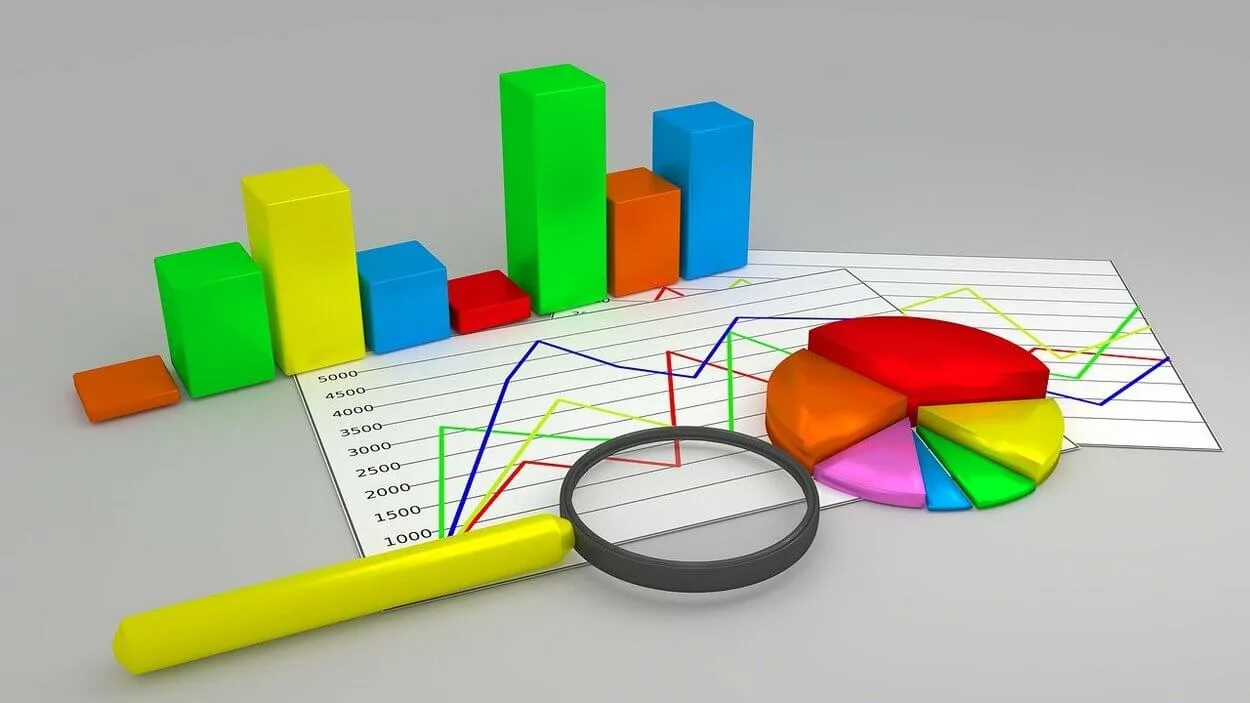The world of finance is filled with a variety of different professions, each with its own unique skill sets and job responsibilities. Among these are traders, quants, and analysts. The three positions share some similarities, but they have distinct features.
There is often a lot of confusion surrounding traders, quants, and analysts. They are pretty different from each other. Education and training are perhaps the most significant areas of difference.
Traders are primarily concerned with buying and selling securities in the market in order to make a profit. They use their knowledge of market conditions and price movements to buy low and sell high.
Quants, on the other hand, are more focused on using mathematical models to predict future market behavior. They develop complex algorithms that can be used by traders to make more informed decisions.
Analysts occupy a middle ground between traders and quants. They use their understanding of both the market and mathematics to help inform trading decisions.
While all three positions involve working with numbers and analyzing data, the specific education and training requirements can vary depending on which role you’re pursuing.
Traders typically need experience in the financial industry, while quants often have a mathematics or computer science background. Analysts usually fall somewhere in between, requiring financial knowledge and analytical skills.
Apart from these, there are many more differences between these three professions. Keep reading to find out more.
All You Need To Know About Traders
Individuals who trade securities on behalf of their clients are called traders.
Traders work in various settings, including banks, brokerage firms, and hedge funds. They typically use a combination of fundamental and technical analysis to make trading decisions.

Traders can be categorized based on the type of securities they trade.
For example, equity traders focus on stocks, while currency traders focus on foreign exchange. Commodity traders, meanwhile, focus on contracts for raw materials like oil and gold.
Traders typically have a four-year degree in business or economics. Many firms also require their employees to pass the Series 7 examination, administered by the Financial Industry Regulatory Authority (FINRA).
The job of a trader can be stressful and demanding. Traders often work long hours, including evenings and weekends. Making split-second decisions is essential, as well as being able to handle large amounts of risk. As such, traders must have strong analytical skills and a high tolerance for stress.
All You Need To Know About Quants
A quant is a math or science expert who uses their knowledge to analyze data and make predictions. Banks, hedge funds, and other financial institutions often employ quants to make investment decisions.
Quants use various methods to analyze data, including statistics, machine learning, and mathematical modeling. They also use their skills to develop financial products such as derivatives and algorithmic trading strategies.
Quants typically have a strong background in math and computer science. Many have advanced degrees in these fields, such as a Ph.D. While quants are often associated with the financial world, their skills can be applied to any field that relies on data analysis.
All You Need To Know About Analysts
Analysts are experts who conduct research and provide analysis and recommendations on a particular topic or issue. They may work in a variety of fields, including business, finance, politics, and healthcare.
To be successful, analysts must communicate their findings to others and make sound recommendations effectively. They must also possess strong research and analytical skills.
Analysts typically hold at least a bachelor’s degree in a relevant field, such as economics or business administration. Some analysts may pursue advanced degrees, such as master’s or doctorate degrees.
Differences Between Traders, Quants, and Analysts
Wall Street is often divided between those who crunch numbers and those who buy and sell stocks.
Both groups are important, but they have different perspectives. One common question is: what are the differences between analysts, quants, and traders?
Simply put, analysts provide research and recommendations, quants develop and back-test trading models, and traders execute trades.

Analysts tend to be more forward-thinking, research-oriented, and focused on the long term. They pore over company financials, read analyst reports, and try to identify trends affecting a stock’s price. Traders are focused on the here and now; they buy and sell stocks based on short-term changes in the market.
Quants are similar to analysts but use complex mathematical models to make predictions. While analysts and quants might sit in an office all day, traders are usually in constant motion, monitoring their screens for price changes.
Roles of Analysts, Quants, and Traders in the Financial Industry
All three roles are important, but they require different skills and knowledge.
- Analysts are responsible for researching economic conditions, industries, and companies to make investment recommendations. They produce reports that contain their findings and recommendations, which are then distributed to clients.
- Quants are similar to analysts in that they also conduct research and develop models, but their focus is on designing and testing trading strategies. Their goal is to find patterns that can be utilized in the market to make profits.
- Traders are the ones who execute trades based on the research and recommendations of analysts and quants. They use their judgment and experience to decide when to buy or sell a security.
Training Or Education Of Traders, Quants, And Analysts
Analysts, quants, and traders play important roles in the financial industry. However, there are some critical differences in their education and training.
Analysts tend to have a more traditional financial education focused on accounting and economic analysis. They use this knowledge to research companies and industries, identify trends and make investment recommendations.
Quants are more math- and science-focused, using their statistics and computer programming expertise to develop trading strategies. They often have degrees in subjects like mathematics or physics.
Traders execute trades on behalf of clients or their firms. They need to assess opportunities quickly and make decisions under pressure. Although formal education is not required, many traders have experience in other financial roles such as sales or analysis.

Lifestyles Of Traders, Quants, And Analysts
There are key lifestyle differences between analysts, quants, and traders.
Analysts work regular business hours, while quants and traders often work long hours, including evenings and weekends.
This is because the markets never close, and there is always an opportunity for profit.
In addition, quants and traders tend to be more comfortable with risk than analysts. This is because their job entails taking risks to make a profit. Finally, analysts tend to be more detail-oriented than quants and traders. They must understand and interpret complex data sets to make accurate predictions.
Consequently, they often have a more analytical and reflective approach to life. While there are some lifestyle differences between these three groups, they all share a passion for the financial markets.
Salaries Of Traders, Quants, And Analysts
There is a big difference in salaries between analysts, quants, and traders.
Analysts tend to be paid the least, with an average salary of $60,000. Quants are paid more, with an average salary of $100,000. And traders are paid the most, with an average salary of $200,000.
This is because analysts tend to do more general research, while quants focus on using data to generate investment ideas. Traders are responsible for executing trades and making sure that they are profitable.
Because of their important role in the financial industry, traders are paid much more than analysts and quants.
Career Paths Of Traders, Quants, And Analysts
Analysts, quants, and traders often pursue different career paths.
Analysts tend to have higher academic backgrounds, focused on things like econometrics, statistics, and mathematics. These skills are used to analyze data and make recommendations about investments.
Quants are similar to analysts because they also use data to make investment decisions. However, quants tend to have more of a focus on computer science and programming. They develop mathematical models that can be used to make automated investment decisions.
Traders focus more on the actual buying and selling of securities. They may use the information provided by analysts and quants, but they also need to be able to make split-second decisions. As a result, traders tend to have more experience in the financial industry.
Here is a video clip showing the comparison between simple traders and quants.
Careerwise, analysts and quants often work for banks or other financial institutions. Traders may work for banks, but they also may work for hedge funds or other companies that engage in active trading.
Below is a table outlining all these differences.
| Differences | Quants | Traders | Analysts |
| Background | Predict future market trends | Buy and sell securities | Use both traders’ and quants’ techniques |
| Annual Salary | Average salary is 100,000 dollars or more | Around 200,000 dollars or more | Approximately 60,000 dollars or more |
| Education | Maths and science-focused education along with statistics and computer programming expertise | No formal education is required; they need practical financial experience | Traditional financial education focused on accounting and economic analysis |
| Career Path | Banks and financial institutions | Banks, trading companies, and hedge funds | Banks and financial institutions |
| Lifestyle | Work long hours, including evenings and weekends | Work long hours, including evenings and weekends | Work regular business hours |
Final Takeaway
- Wall Street is full of different types of financial professionals with unique skill sets and roles.
- Many traders work long hours, often spending weekends and late nights monitoring market activity in the office. Traders typically have a background in economics or finance, whereas quants have a stronger focus on mathematics or computer science.
- Analysts can come from either background, but they must also have excellent research and writing abilities.
- The work of quants is usually more regular, but it can be just as intense when markets are volatile. As a rule, analysts work the most regular hours of the three, but their workload can vary significantly based on the season.
- A trader’s salary is typically higher than a quant’s, while analysts’ salaries fall somewhere between the salaries of traders and quants, depending on their employer and experience level.
- Besides all these, their career paths are also slightly different. Analysts and traders can move into many different roles as their skills and interests allow, while quants often become hedge fund managers or start their funds.
I hope this article helps clarify your doubts regarding these three professions.

